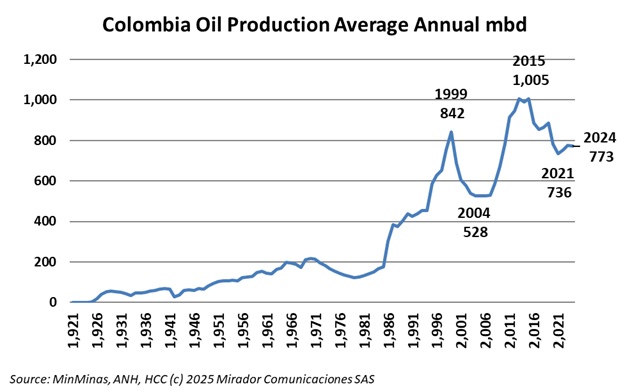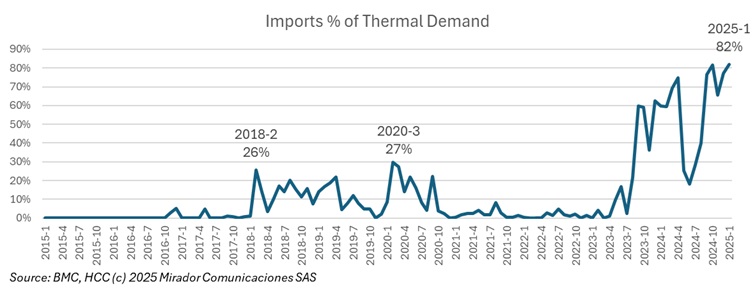
Ecopetrol’s (NYSE: EC) recent stock rally is a result of its operational success and positive market messaging, according to Ricardo Roa Barragán, the company’s president.
Colombia’s Minister of Mines and Energy (MinEergia), Omar Andrés Camacho, sparked controversy by dismissing fracking projections in the country as mere “astrology.”
Millions of Colombian households were met with an unwelcome surprise in February as natural gas prices soared, with increases reaching up to 36% in several major cities, including Bogotá, Medellín, and Bucaramanga.
Grupo Energía Bogotá (GEB) and its subsidiary, Transportadora de Gas Internacional (TGI), have been recognized in the Sustainability Yearbook 2025 by S&P Global for their outstanding performance in environmental, social, economic, and governance management.
In a recent report, BTG Pactual analyzed the extension of the agreement between Colombian oil company Ecopetrol and Occidental Petroleum (NYSE: OXY) to continue hydrocarbon production in the Permian Basin (Texas, U.S.), where fracking is utilized.
Amid ongoing concerns over natural gas availability and rising prices in Colombia, speculation arose regarding a possible intervention of Vanti by the Superintendency of Industry and Commerce (SIC).
Colombia’s Mining and Energy Planning Unit (UPME) released its latest study, Natural Gas Supply Plan 2023-2038, outlining potential supply challenges and the urgent need for new infrastructure to secure the country’s energy future.

The ANH has published the detailed results for oil and gas for 2024 so it’s time to dissect what happened. Oil production was down less than 1%. We might have expected worse.

The debate over gas prices in Colombia has sparked controversy, with conflicting narratives from gas distributors and the government.